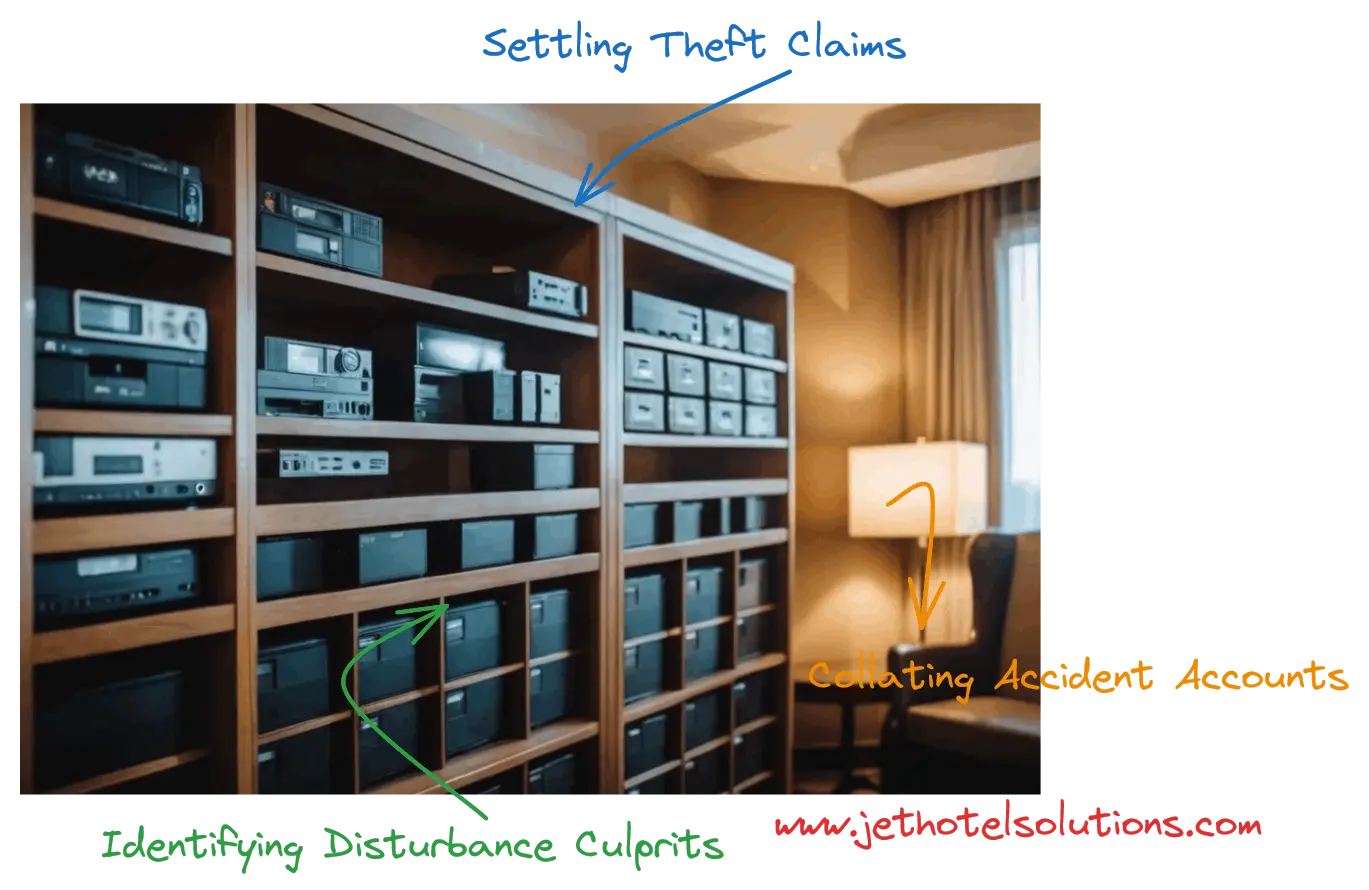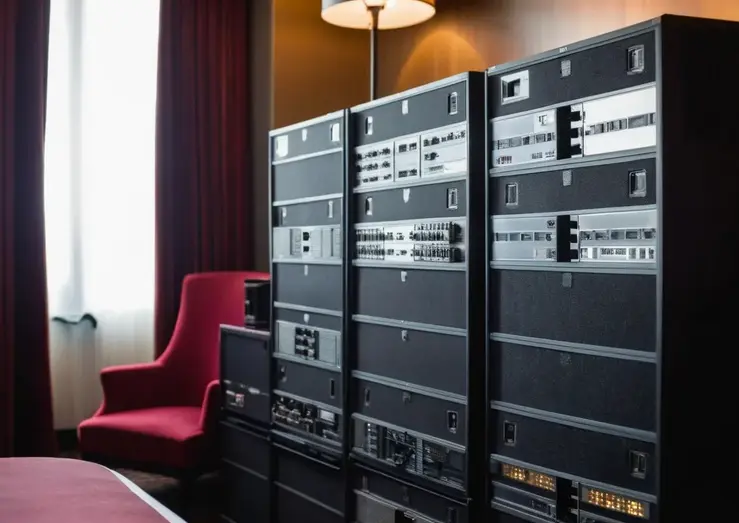As a hotel guest, you expect top-notch service, security, and amenities to make your stay pleasant. What you may not realize is that ensuring your comfort involves extensive behind-the-scenes efforts from housekeeping to maintenance to security operations. An element falling under the safety apparatus at hotels includes closed-circuit video surveillance, capturing activity across myriad zones 24/7.
But how long do properties actually retain and review all that recorded footage given storage needs and privacy concerns? Does it simply get tossed after a few days? Read on for wider perspectives around hotel video data retention exploring driving factors, guidelines, usage instances and future possibilities.
Balancing Hotel Surveillance Storage Costs and Risk Mitigation
Installing cameras targeting key customer and staff access points has become relatively inexpensive for hoteliers nowadays given declining camera prices and cloud storage offerings. Still, longer video retention durations equate directly to bigger monthly data bills.
Houston Marriott GM Rhonda Rhodes explains their balanced stance: “We configured our systems retaining footage covering external/internal hotel public areas for 20 days, giving leeway for security reviews related to routine incidents like slips or petty theft. For cameras monitoring sensitive areas like server rooms or our finance department, the retention policy extends to 90 days addressing higher risks like break-ins and fraud.”
Indeed, tailoring retention spans in proportion to assessed risks makes prudent sense. While technology enables perpetual recording economically, strategic budgeting given risk profiles reinforces operational discipline.
Legal teams meanwhile advise avoiding reflexively maximizing retention without documentary policies governing storage, access and destruction. Adhering to data privacy best practices remains advisable despite cloud systems theoretically permitting indefinite retention.
Industry Benchmarks for Hotel Video Storage Periods
No universal government regulations currently exist mandating standardized surveillance data retention periods within United States or European Union hospitality environments.
General corporate data security guidelines do apply, like only storing information deemed absolutely necessary and discarding it securely when no longer relevant.
Absent official statutes, informal industry norms have organically developed around recommended hotel video storage timespans factoring practical realities. Surveys reveal retention duration sweet spots between 14 to 60 days for typical establishments.
The lower two week mark allows investigating recent guest theft reports, parking lot accidents or Harassment complaints falling under the average legal reporting window. Properties in higher crime vicinities and Vegas mega resorts notorious for drunken guest antics understandably maintain 60 days covering liabilities stemming from destructive behavior.
For perspective, 24×7 recordings from a dozen 1080p hotel cameras consume around 3 terabytes monthly. While this fits low-cost cloud offerings, multiplying storage needs and maintenance efforts given substantially larger camera deployments makes Unlimited perpetuity challenging.
Common Usage Instances for Stored Hotel Security Footage
Despite relying heavily on technology, informed human oversight applying context around archived hotel visuals proves crucial for meaningful security insights.

- Settling Theft Claims: Cross referencing room access logs and hallway camera timestamped movements confirmed no unauthorized entries occurred when guests reported missing jewelry.
- Collating Accident Accounts: Correlating outdoor area mishap footage with weather data and witness statements helped establish negligence apportioning across involved parties.
- Identifying Disturbance Culprits: Back tracing weekend pool party noise complaints and vandalism to specific registered room guests based on filmed records ensured proper sanctions.
- doubled down that ensuring convenient camera footage access protocols for authorized staff exists alongside coherent guidelines preventing improper use remains imperative given societal privacy aspects.
- Astute data stewardship builds guest confidence despite prevalence of cameras withbehavior better self-regulated given awareness of monitored spaces.
What The Future Holds for Hotel Video Surveillance Practices
As cameras continue permeating hotels owing to cheaper gear and deep learning analytics, storing exponentially accumulating video content for perpetuity appears untenable.
Marriott’s Kris Srikanth expects retention goalposts constantly moving: “Today retaining months of high-definition footage seems excessive to some hoteliers given infrastructure costs. Soon analytics will transform raw video into compact metadata like movement heatmaps, flow levels and event flags rendering retention durations irrelevant.”
The lifecycle for hotel visual data management thus must evolve from days or weeks today towards analysis rather than archival. Expert systems trained around baseline activity patterns can spotlight anomalies clubbed with relevant clips for human investigation without dependence on ineffective manual monitoring processes.
 As machine learning further democratizes best practices, updated guidelines will emerge centered on captured analytics plus curated incident multimedia. Las Vegas hotels where outlier guest behaviors thrive already showcase pioneering techniques fusing computer vision augmented by human discretion.
As machine learning further democratizes best practices, updated guidelines will emerge centered on captured analytics plus curated incident multimedia. Las Vegas hotels where outlier guest behaviors thrive already showcase pioneering techniques fusing computer vision augmented by human discretion.
The future may well see public surveillance data accumulations diminish over time given processing handoffs to responsive AI. But hotels will lead the charge being early adopters where customer experience overlaps directly with operational risk factors. Getting there needs balanced video retention policies today aligning safety assurance with sensible storage budgets while technology matures.
So while most travelers rarely ponder recorded security eyes preserving order during their stays,purposeful data custody nourishes hospitable environs where memorable moments unfold. Just another behind-the-scenes hotel rhythm worth appreciating during your next check-in.
